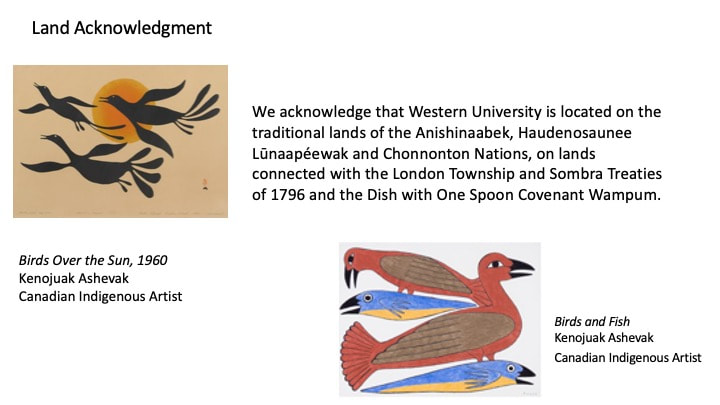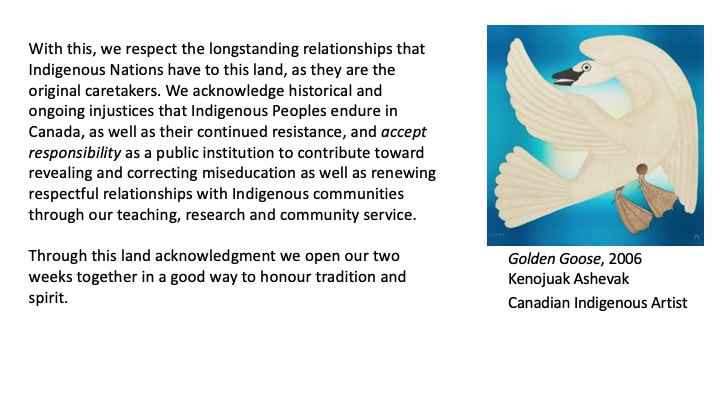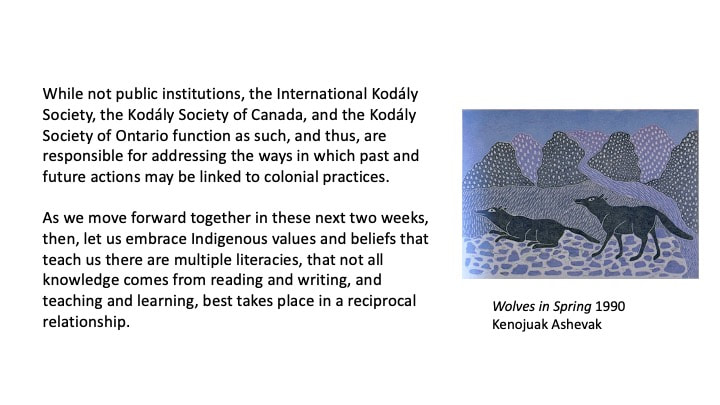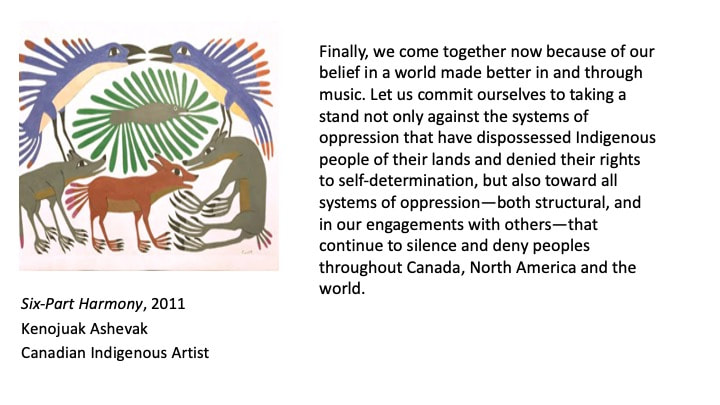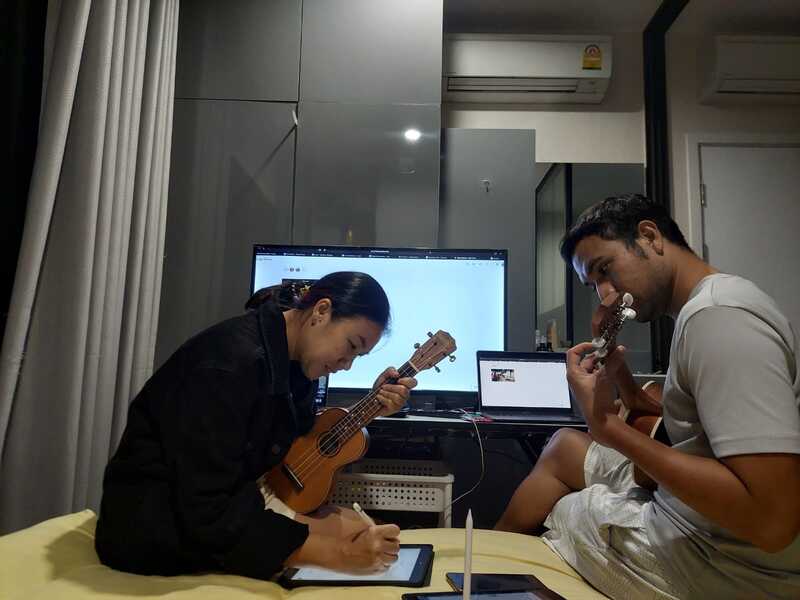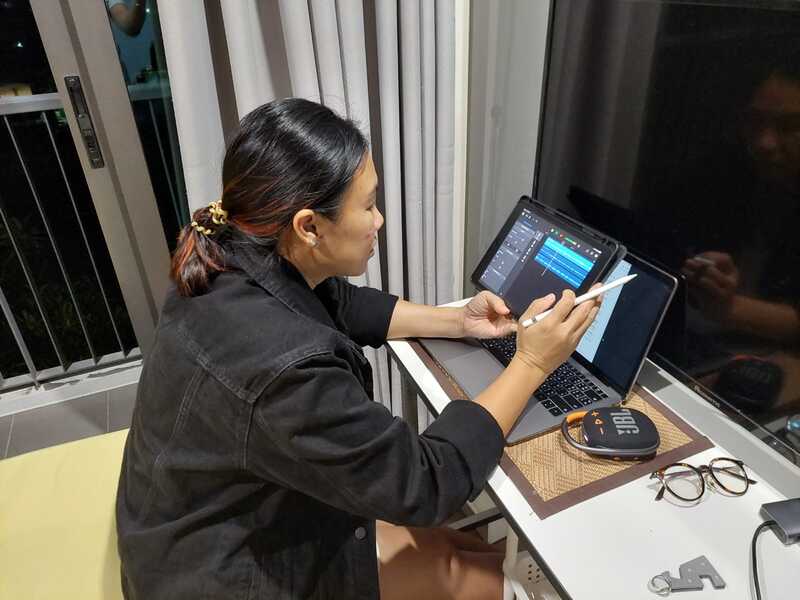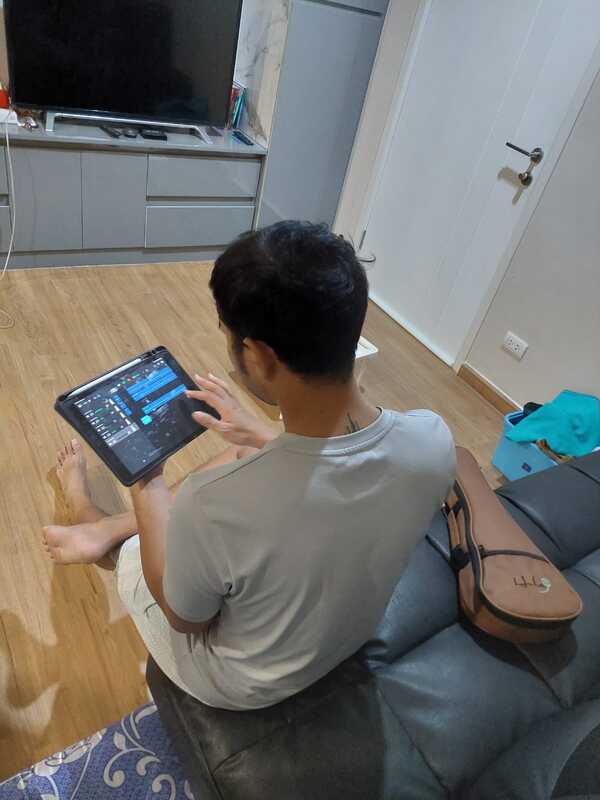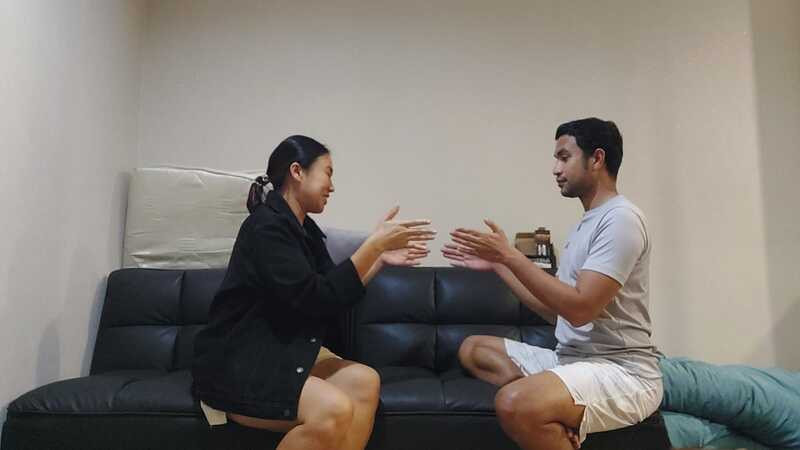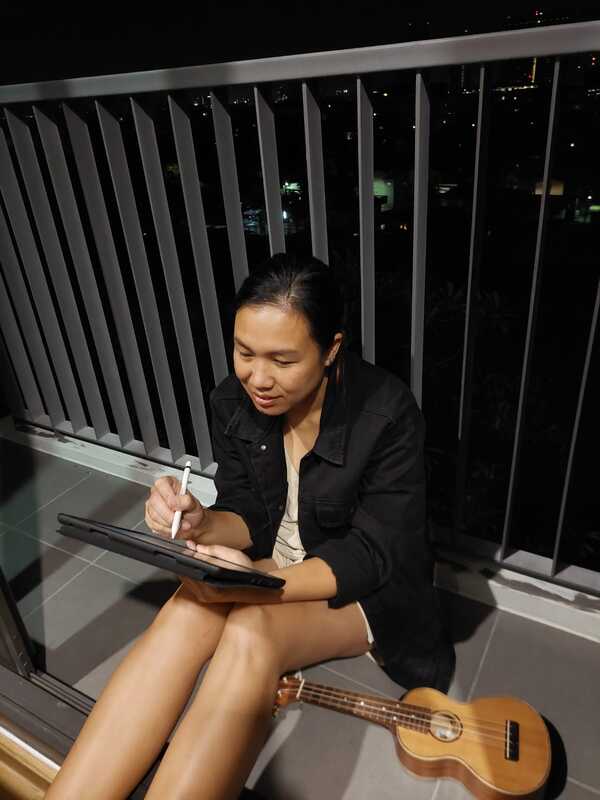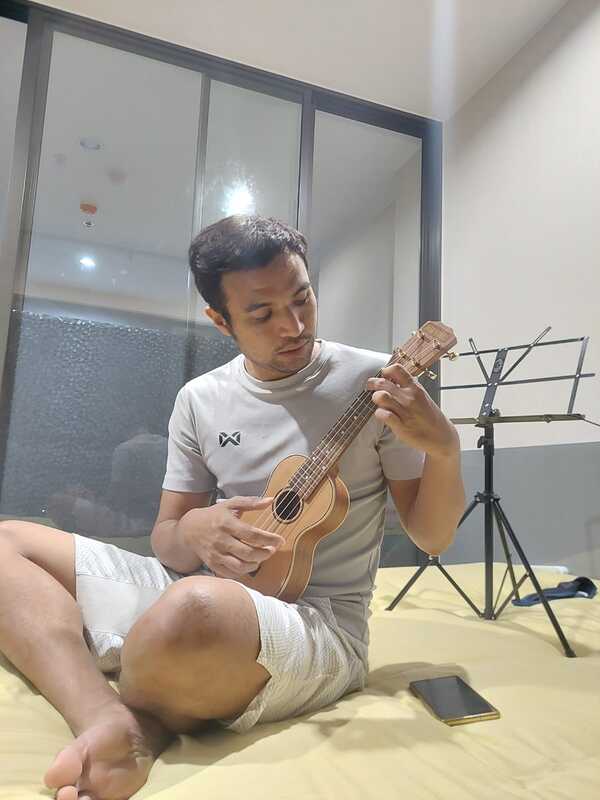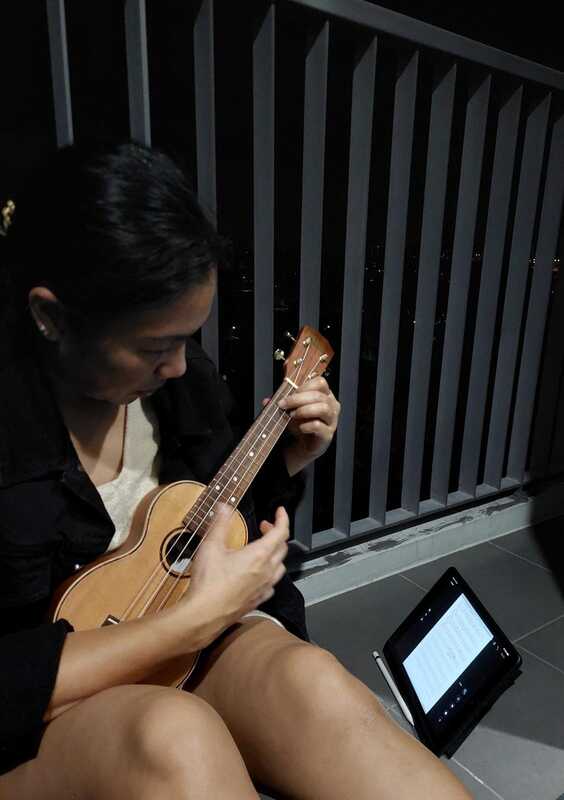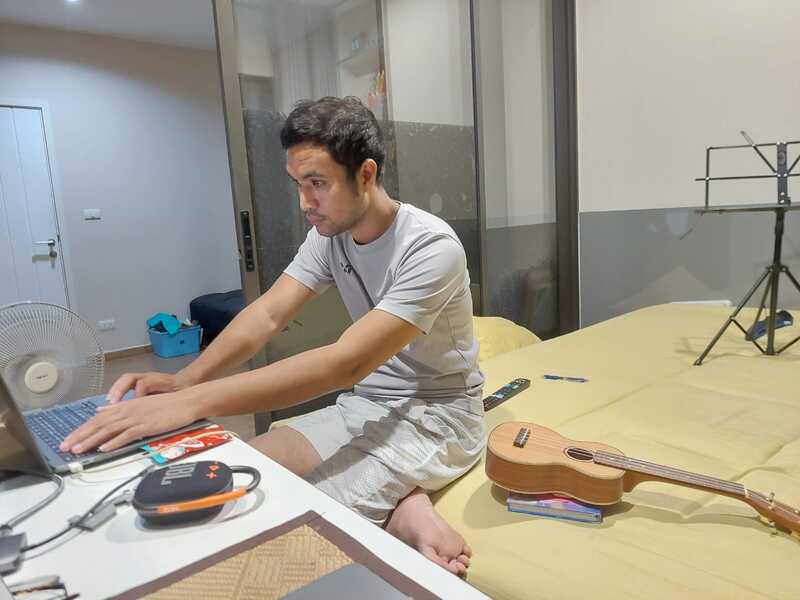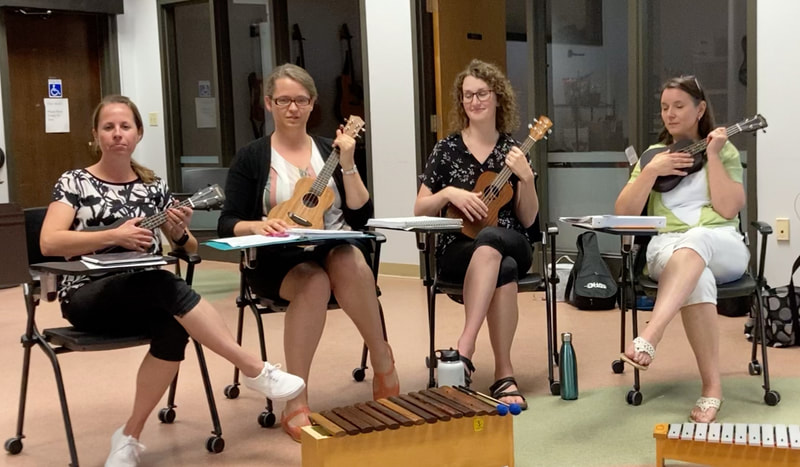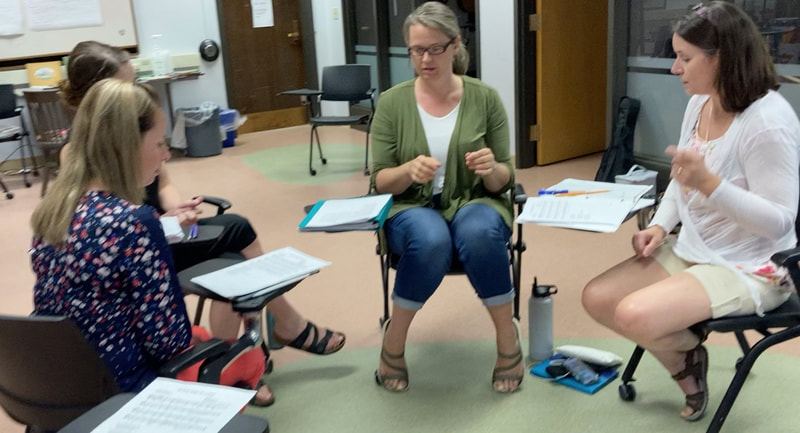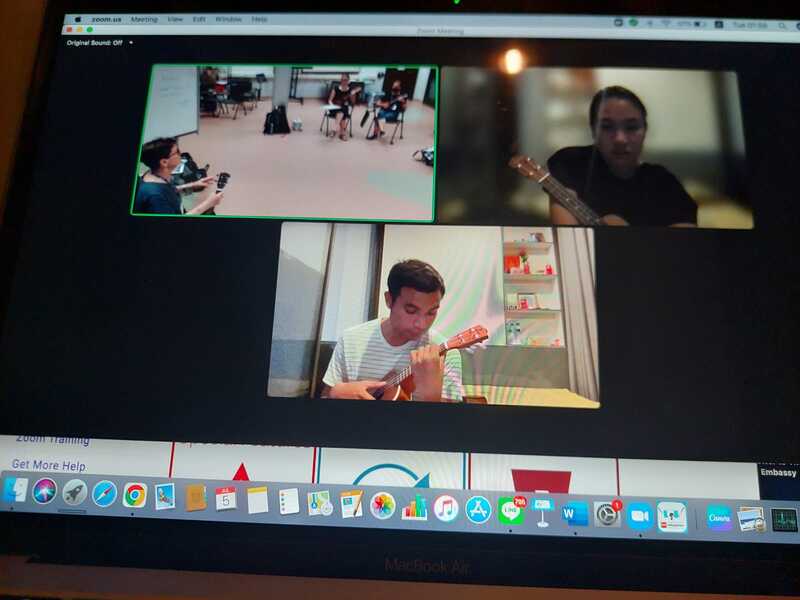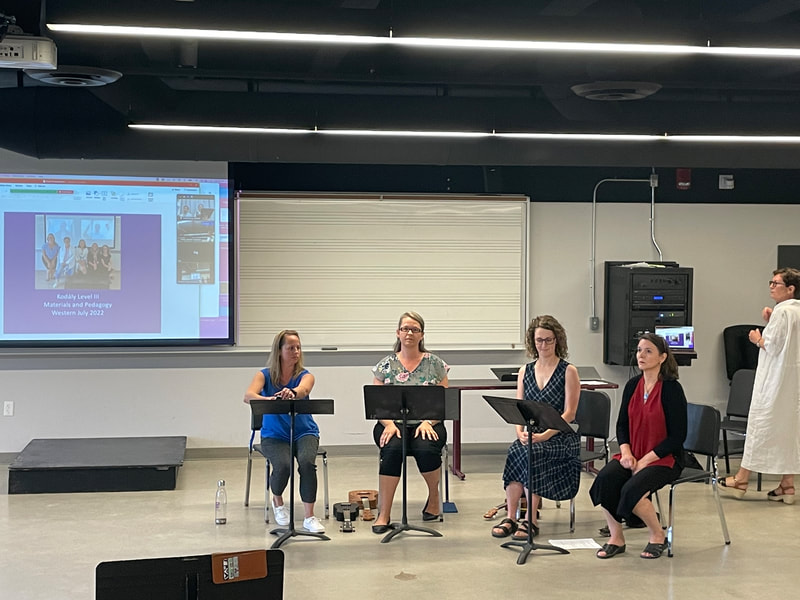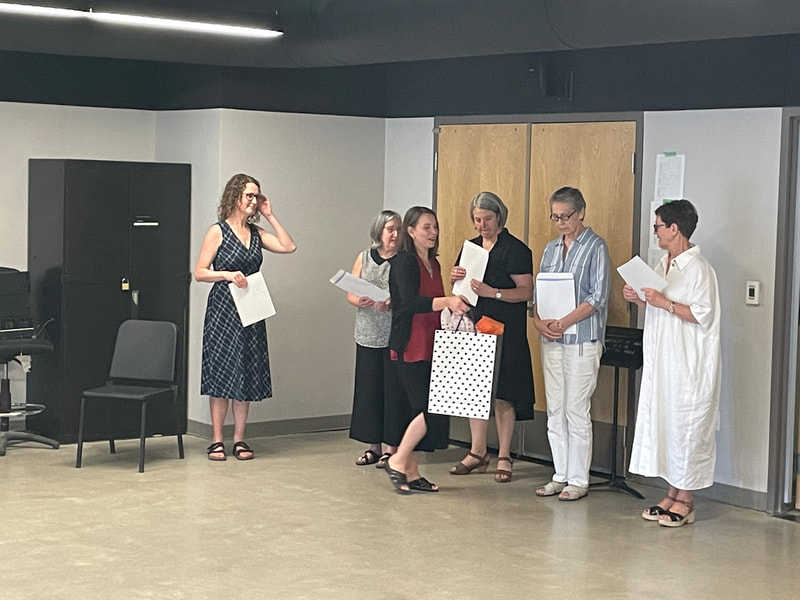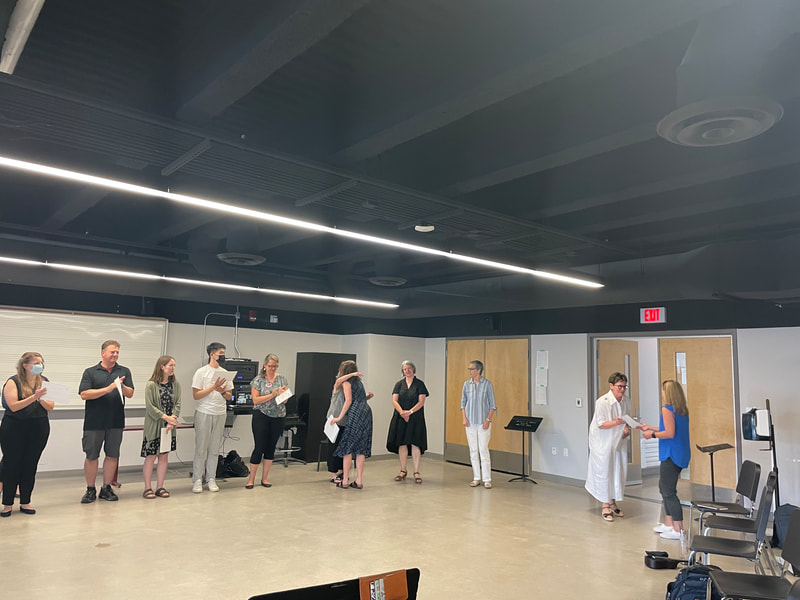Back after two summers away: Kodály Level III - !
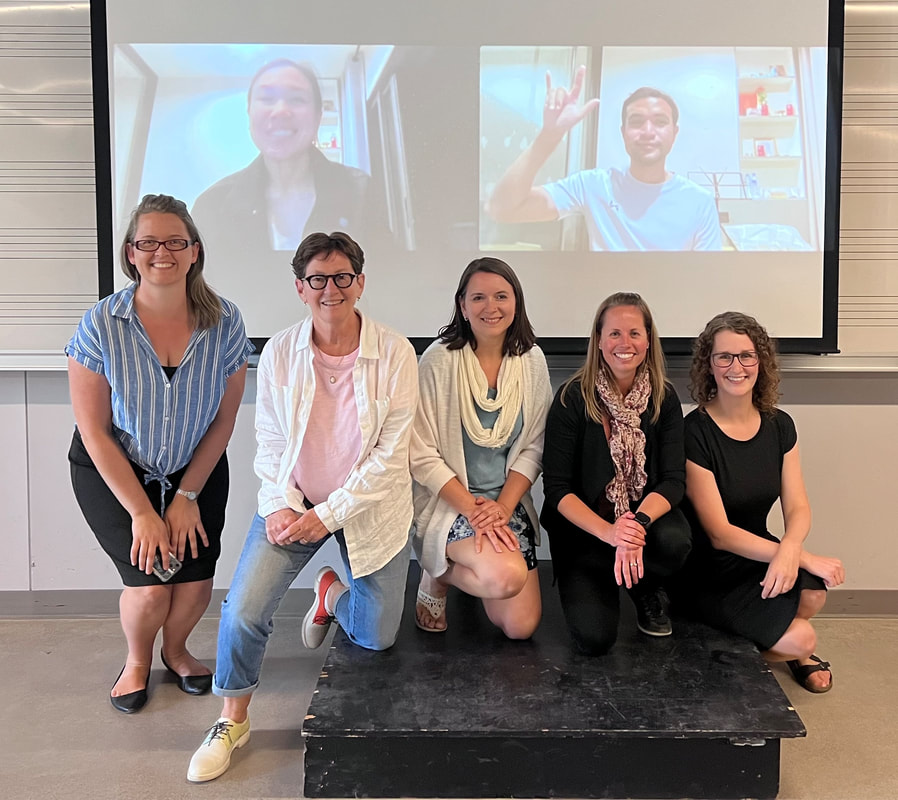
Ing, Ting (coming in from Thailand - which was a day and night switch for them, Alisha, Cathy, Leslie, Danielle, Sara
In reflection, I am glad for the two summers off - I was able to rethink, even more deeply, the ways in which a singular focus on western notation - to the detriment of other notational and aural ways of knowing and experience our world - is colonizing. Thus, we began the two weeks of Level III pedagogy and materials learning to problematize by peeling back layers of questions: Always beginning with Who Benefits? We then thought through multiple examples of Essential questions and continued to return to these daily and in our final projects.
Here are the Essential Questions that spoke to each:
Alisha:
•In what ways does music and musicking convey messages about social and humanitarian issues?
I chose this because music can be so powerful in changing lives and ideas.
Sara:
• How is our understanding of culture and society constructed through and by music?
This question asks us to think critically about the music in our lives and to better understand why we “know” what we “know”. It can also open doors to new ways of understanding how perspectives are formed.
Danielle:
• In what ways can we teach and learn in a space that affirms the spectrum of students’ and instructors’ genders and sexual identities?
I want classrooms to be inclusive spaces where students and teachers can be their authentic selves.
Ting:
Why sing?
Singing is one of the expressions of human emotions.
Ing:
• Why listen?
Listening is connecting. You can hear the thoughts and feeling of someone else.
We can learn through listening
Leslie:
• How is music used to manipulate us?
I see this in religious environments and wish to know how to be more authentic in my motives.
Here are the Essential Questions that spoke to each:
Alisha:
•In what ways does music and musicking convey messages about social and humanitarian issues?
I chose this because music can be so powerful in changing lives and ideas.
Sara:
• How is our understanding of culture and society constructed through and by music?
This question asks us to think critically about the music in our lives and to better understand why we “know” what we “know”. It can also open doors to new ways of understanding how perspectives are formed.
Danielle:
• In what ways can we teach and learn in a space that affirms the spectrum of students’ and instructors’ genders and sexual identities?
I want classrooms to be inclusive spaces where students and teachers can be their authentic selves.
Ting:
Why sing?
Singing is one of the expressions of human emotions.
Ing:
• Why listen?
Listening is connecting. You can hear the thoughts and feeling of someone else.
We can learn through listening
Leslie:
• How is music used to manipulate us?
I see this in religious environments and wish to know how to be more authentic in my motives.
The pedagogical focus for the two weeks was aural - those moments when we often reach for a pencil to write something out that we have heard, were not allowed. We spent the two weeks improvising, arranging (including creating mashups) and composing (including pop songs), and playing (and hearing) along with ukuleles. It was an amazing two weeks! I am honoured to have spent these years with these people -thank you for bringing me into your lives.
